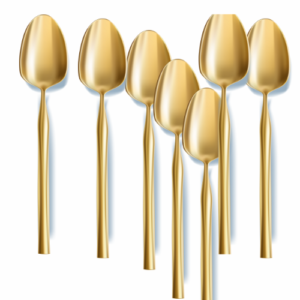ADHD and Spoon Theory: A Womans Guide

Understanding Spoon Theory: A Guide for Women with ADHD
Welcome to our latest blog post, where we delve into the Spoon Theory and how it can be a transformative tool for women with ADHD in advocating for themselves, practicing self-care, and recognizing their limits. This concept, though initially developed to explain life with a chronic illness, has found relevance among the neurodivergent community, offering a lens through which individuals can better understand and manage their energy reserves.
What Is Spoon Theory?
Spoon Theory is a metaphor created by Christine Miserandino to describe the limited energy reserves people with chronic conditions, like lupus, experience daily. In this analogy, spoons represent units of energy, and each task throughout the day requires a certain number of spoons. Once you run out of spoons, you cannot do more until your energy is replenished.
Why Do ADHD Women Need to Understand How to Manage Their Spoons?
Women with ADHD face unique challenges that can make daily energy management crucial. The constant navigation through attention regulation, impulsivity, and sensory sensitivities can deplete energy rapidly. Spoon Theory offers a framework to:
- Understand energy limitations
- Prioritize tasks effectively
- Communicate needs to others
How Can Spoon Theory Help ADHD Women with Self-Care?
Using Spoon Theory encourages proactive self-care by:
- Identifying Energy Drainers: Recognize which activities deplete your energy the most and plan accordingly.
- Prioritizing Rest: Ensure you allocate spoons for rest and rejuvenation, not just productivity.
- Setting Realistic Expectations: Understand your energy limits to set achievable goals for the day.
How Does Spoon Theory Help ADHD Women With Self-Advocacy?
Spoon Theory empowers women with ADHD to advocate for their needs by:
- Providing a simple yet powerful way to communicate the impact of ADHD on daily life.
- Helping others understand why certain accommodations or adjustments are necessary.
- Encouraging the setting of boundaries to conserve energy for essential tasks.
How Is Conserving Your Spoons an Act of Self-Compassion?
Embracing Spoon Theory is a form of self-compassion because it:
- Acknowledges your limits without judgment.
- Reduces self-criticism when you can't do it all.
- Celebrates what you can achieve within your energy limits.
How Do You Use Tools of Self-Awareness With Spoon Theory?
Combining Spoon Theory with self-awareness tools can enhance energy management:
- Daily Check-Ins: Assess your spoon count each morning to plan your day realistically.
- Reflect on Energy Patterns: Notice which activities tend to drain or conserve energy to adjust your plans.
- Mindfulness Practices: Use mindfulness to stay present and monitor your energy levels throughout the day.
How Does Spoon Theory Help ADHD People With Habit Stacking?
Habit stacking, the practice of adding new habits onto existing ones, aligns perfectly with Spoon Theory for ADHD management:
- Conserves Energy: Automating routines reduces the mental load and conserves spoons for other tasks.
- Builds Predictability: Having predictable routines can decrease anxiety and the energy spent worrying.
- Facilitates Success: Starting with small, easy habits ensures success, which is crucial for building confidence and conserving energy.
Conclusion
For women with ADHD, Spoon Theory is not just about understanding limitations; it's about embracing a self-care framework that respects those limits and fosters self-compassion, advocacy, and effective habit formation. By viewing daily energy through the lens of spoons, you can better navigate the complexities of ADHD, advocate for your needs, and engage in self-care practices that honor your unique energy landscape.
Remember, managing your spoons is an ongoing process that requires patience, understanding, and kindness towards yourself. Embrace Spoon Theory as a tool to guide you in this journey, allowing you to make the most of your energy each day and move closer to your goals with confidence and self-compassion.
ADHD and Burnout: Navigating the complex landscape(Opens in a new browser tab)
More Information on Spoons and managing your fatigue and energy from other sites
The Antidote to ADHD Fatigue and Exhaustion? Stacking Habits (and Spoons)
Spoon Theory and Autism Explained - What’s the Overlap?( Autism from the inside You tube)